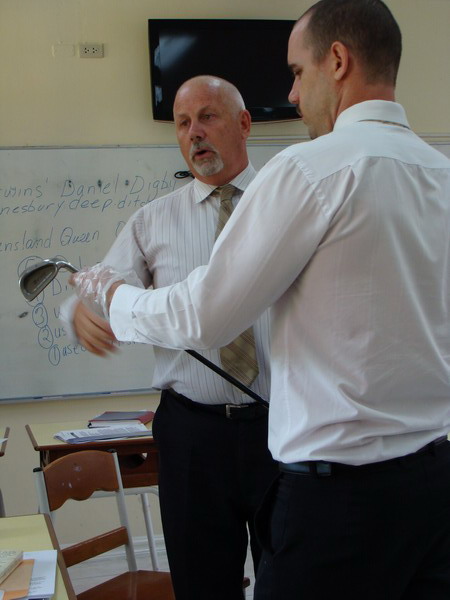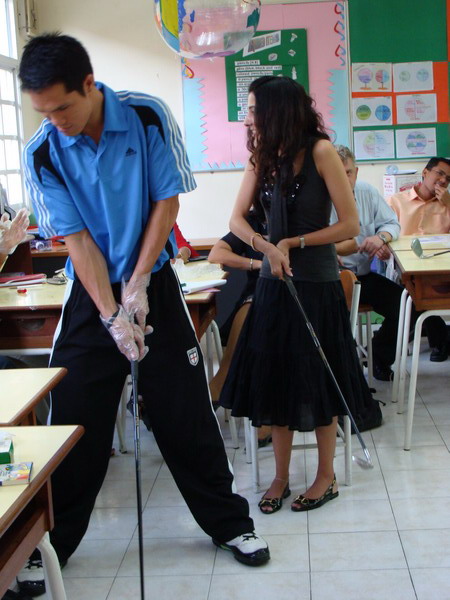On-going professional development through the Learning First Wednesday (LFW) session for the 2009-2010 academic year began on September 2, 2009. LFW sessions at Wells International School are special occasions allocated for teachers to come together and learn about improving teaching practices (mini workshops). The topic discussed at the session was “diversifying teaching techniques.” This topic was chosen because in any given class teachers face students with diverse needs, behavioral patterns, learning styles and achievement levels. Apart from being sensitive and perceptive to different needs of students, teachers at Wells International School are encouraged to use differentiated instruction in creative ways. This ensures that every student in the class learns at his/her own pace. Mr. Lawrie, the Academic Director of the primary section instructed teachers to be open, flexible, and creative in the way they deliver lessons. He also emphasized that the use of appropriate anticipatory sets or introductory materials/activities sets the tone for effective learning and sustained attention toward lessons.
Teachers were shown how to teach a single concept using multiple teaching approaches such as engaging lecture, visual, rote, sequential, color, modeling, chain, and cooperative techniques. Ways to combine and use techniques were also demonstrated at the session.
Discussion about meeting individual student needs led teachers into thinking and talking about students who are at risk. Often, students suffer not because of what they do or do not do; but rather because of what a teacher does or does not do. For example, if a teacher writes extremely small characters on the board, some students will be at risk of being visually challenged when it comes to copying down notes from the board. However, if the teacher was perceptive, he/she would prevent difficulty in viewing the board by writing big enough characters – this benefits every student alike. Hence, it is highly possible that many negative experiences of students at school is not solely because they are not ready to learn but also because teachers do not differentiate instruction. Success in learning comes from both student characteristics and teacher efficacy. One variable alone will not be sufficient to define the quality of education. By default, the two variables are interdependent.
The conclusion of the matter: “The focus of our efforts, therefore should be on enriching our institutional and professional capacity and responsiveness, rather than categorizing and penalizing students for simply being who they are.” (taken from The 1983 publication of A Nation at Risk: The Imperative for Educational Reform – The National Commission on Excellence in Education)

